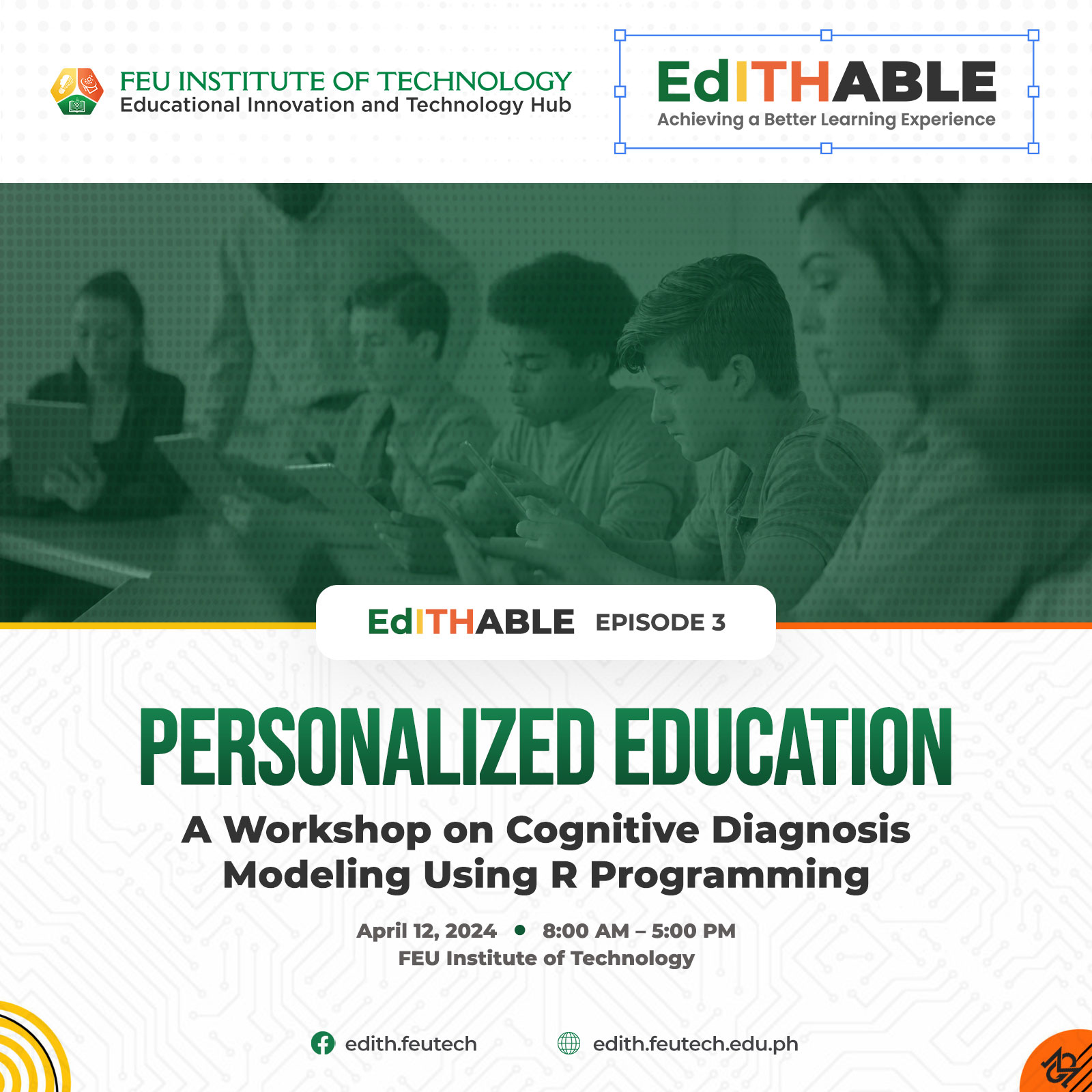Episode No. 3
Personalized Education: A Workshop on Cognitive Diagnosis Modeling Using R Programming
Personalized learning has emerged as a pivotal approach in education, aiming to tailor the learning experience to meet the individual needs, skills, and interests of each student. This method recognizes the diverse learning styles and paces at which students learn, thereby enhancing engagement, motivation, and educational outcomes. By leveraging data-driven insights to customize instruction, personalized learning shifts the educational paradigm from a one-size-fits-all to a more inclusive, adaptive model. This approach not only addresses learners' weaknesses and builds on their strengths but also fosters a deeper, more meaningful learning experience.
The EdITHABLE Episode 3 focuses on unlocking the full potential of personalized learning through the lens of Cognitive Diagnostic Modeling (CDM) using R programming. This episode explores how we can utilize CDM to analyze learning data and identify specific gaps in knowledge and skills of students. Integral to this episode is the inclusion of a workshop component designed to provide hands-on experience with CDM and R programming. This practical segment is aimed at empowering educators with the skills necessary to implement these advanced diagnostic tools in their own classrooms.
For this episode, the objectives are as follows:
- Understand the Foundations of CDM: Participants will gain a comprehensive understanding of the principles and methodologies underlying CDM. This includes familiarizing themselves with key concepts, models, and the theoretical framework that enables the diagnosis of students' cognitive skills and knowledge states.
- Develop Proficiency in R Programming for Educational Data Analysis: The workshop will provide attendees with the skills to use R, a powerful programming language for statistical computing and graphics, for the analysis of educational data. This objective includes learning how to manipulate data sets, apply CDM packages, and visualize diagnostic results effectively to inform instructional strategies.
- Apply CDM to Design Personalized Learning Experiences: Participants will learn how to translate diagnostic insights into actionable teaching strategies. This involves using data derived from CDM to identify individual learning needs, tailor instructional content, and adjust teaching methods to improve student engagement and achievement. Attendees will engage in practical exercises to design personalized learning plans that can be implemented in their educational contexts.
Resource Speaker
Kevin Carl P. Santos
University of the Philippines Diliman, Philippines
Dr. Kevin Carl P. Santos is a Senior Research Fellow at the Assessment, Curriculum, and Technology Research Centre (ACTRC) and an Associate Professor at the Educational Research and Evaluation Area of the College of Education in the University of the Philippines-Diliman. He is formerly an Associate Professor at the School of Statistics in UP Diliman and Post-Doctoral Fellow at the Faculty of Education in The University of Hong Kong (2018-2019). He was also a Visiting Research Scholar at the Graduate School of Education at Rutgers The State University of New Jersey (2015-2016). He finished his PhD in Statistics (2017), MS in Statistics (2011), and BS in Statistics (2009) degree program in UP Diliman. His research interests include sampling designs, and psychometrics, particularly cognitive diagnosis modeling and item response theory, and secondary analysis of large-scale educational assessments.

EdITHABLE is an episode-by-episode exploration, carefully curated to delve into diverse topics that are shaping the future of learning. It is not just a series of seminars; it is an immersive journey that embraces the transformative power of technology and its seamless integration into education. Learn More

